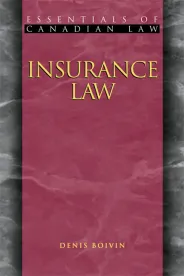In Flejtner v. West Bend Mut. Ins. Co., Gary and Barbara Kitchen were killed when a van driven by Eddie Keck ran into them. The complaint alleged that Keck was an employee of the insured, Dale P. Chapp d/b/a Structural Steel Erectors, and was driving a van owned by the insured. Id. The complaint further alleged that Keck was drunk and was driving the van for his personal use at the time of the accident. Id. The representatives of the Kitchens’ Estate alleged that the insured was negligent in its policy-making, hiring, supervising, training and retaining of Keck and that the insured negligently entrusted its van to Keck. Id. The trial court granted summary judgment to the insurer, finding that neither the Commercial General Liability Policy nor the Umbrella Policy provided coverage.
The court of appeals affirmed the trial court’s decision. With respect to the Commercial General Liability Policy the court held that the “auto” exclusion applied, precluding coverage. With respect to the Umbrella Policy, the court likewise held that because the van was not a “covered auto” the Umbrella Policy’s auto exclusion precluded coverage.
The court of appeals then addressed the Estate’s argument that, notwithstanding the above analysis, the policies provided coverage under the “independent concurrent cause rule.” The Estate argued that the insured’s negligent hiring and supervision of Keck, and the insured’s negligent entrustment of its van to Keck, constituted an independent concurrent cause of the accident and that the policies therefore provided coverage. Id. The court of appeals found in favor of the insurer, explaining that the independent concurrent cause rule extends coverage to a loss caused by an excluded risk if another concurrent cause is independently actionable. In order to result in coverage, “[t]he independent concurrent cause must provide the basis for a cause of action in and of itself and must not require the occurrence of the excluded risk to make it actionable.” Id. (emphasis in original). The court of appeals held that because the insured’s alleged negligence in letting Keck drive the van while drunk could not have caused the accident by itself, the independent-concurrent cause doctrine did not apply and the trial court’s grant of summary judgment in favor of the insurer was proper.




 />i
/>i


